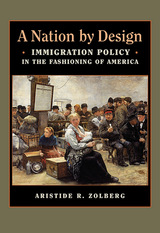
The essays that comprise this volume exemplify the best aspects of recent Caillebotte scholarship. They employ a variety of perspectives to examine the ways in which his art sheds light on the formation of individual and class identities in Paris during the early years of the Third Republic—an era of transition marked by the burgeoning of capitalism and the instabilities of newly shifting gender roles in the modern world.
Addressing a wide range of major paintings by Caillebotte, the contributors reveal the compound ways in which the artist encoded his images and the multiple interpretations to which these images are susceptible. Juxtaposed so as to complement and challenge one another, these essays build a provocative whole as they probe issues of spectatorship and authorial intention. The contributors—all internationally known scholars and art professionals—create an important theoretical framework for the discussion of Caillebotte’s work.

According to the national mythology, the United States has long opened its doors to people from across the globe, providing a port in a storm and opportunity for any who seek it. Yet the history of immigration to the United States is far different. Even before the xenophobic reaction against European and Asian immigrants in the late nineteenth century, social and economic interest groups worked to manipulate immigration policy to serve their needs. In A Nation by Design, Aristide Zolberg explores American immigration policy from the colonial period to the present, discussing how it has been used as a tool of nation building.
A Nation by Design argues that the engineering of immigration policy has been prevalent since early American history. However, it has gone largely unnoticed since it took place primarily on the local and state levels, owing to constitutional limits on federal power during the slavery era. Zolberg profiles the vacillating currents of opinion on immigration throughout American history, examining separately the roles played by business interests, labor unions, ethnic lobbies, and nativist ideologues in shaping policy. He then examines how three different types of migration--legal migration, illegal migration to fill low-wage jobs, and asylum-seeking--are shaping contemporary arguments over immigration to the United States.
A Nation by Design is a thorough, authoritative account of American immigration history and the political and social factors that brought it about. With rich detail and impeccable scholarship, Zolberg's book shows how America has struggled to shape the immigration process to construct the kind of population it desires.
READERS
Browse our collection.
PUBLISHERS
See BiblioVault's publisher services.
STUDENT SERVICES
Files for college accessibility offices.
UChicago Accessibility Resources
home | accessibility | search | about | contact us
BiblioVault ® 2001 - 2024
The University of Chicago Press









